Food and Agriculture Institute
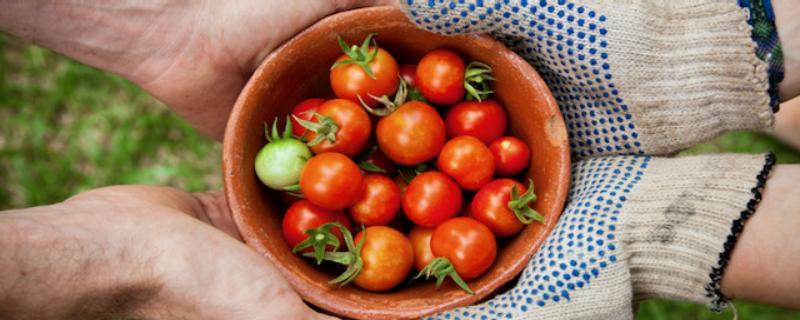
The following presentations were delivered at the Fourteenth International Conference on Climate Change Impacts & Responses (April 7-8, 2022):
Participatory Methods for Examining Vulnerabilities to Exogenous Shocks (Rob Newell, Colin Dring)
This presentation discusses the use of experimental, participatory methods and tools for supporting long-term food systems planning by examining regional food vulnerabilities and opportunities/needs for building resilience to exogenous shocks
Climate Impacts and Resiliency Planning in the Fraser Valley Food System (Colin Dring, Rob Newell)
This presentation reports on the outcomes of the year-long participatory action research project in the Fraser Valley Regional District, which identified food system vulnerabilities via an exploration of experienced pandemic impacts and perceived impacts arising from climate change (and other) shocks.
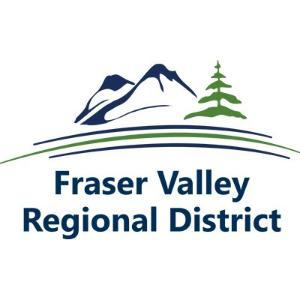
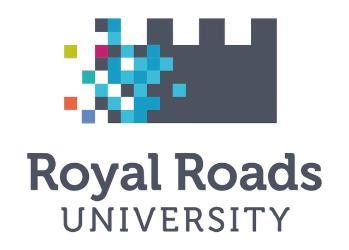
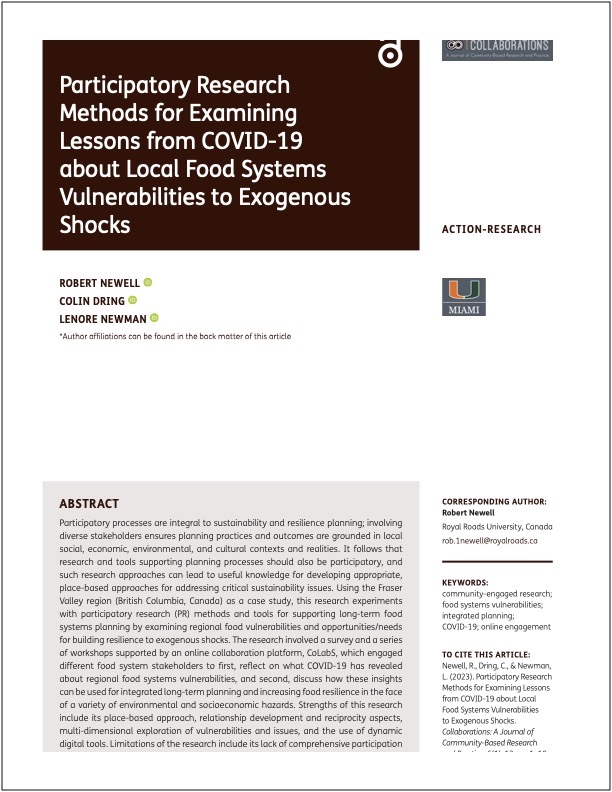
Participatory processes are integral to sustainability and resilience planning; involving diverse stakeholders ensures planning practices and outcomes are grounded in local social, economic, environmental, and cultural contexts and realities. It follows that research and tools supporting planning processes should also be participatory, and such research approaches can lead to useful knowledge for developing appropriate, place-based approaches for addressing critical sustainability issues. Using the Fraser Valley region (British Columbia, Canada) as a case study, this research experiments with participatory research (PR) methods and tools for supporting long-term food systems planning by examining regional food vulnerabilities and opportunities/needs for building resilience to exogenous shocks.
Newell, R., Dring, C., & Newman, L. (2023). Participatory Research Methods for Examining Lessons from COVID-19 about Local Food Systems Vulnerabilities to Exogenous Shocks. Collaborations: A Journal of Community-Based Research and Practice, 6(1), 12.
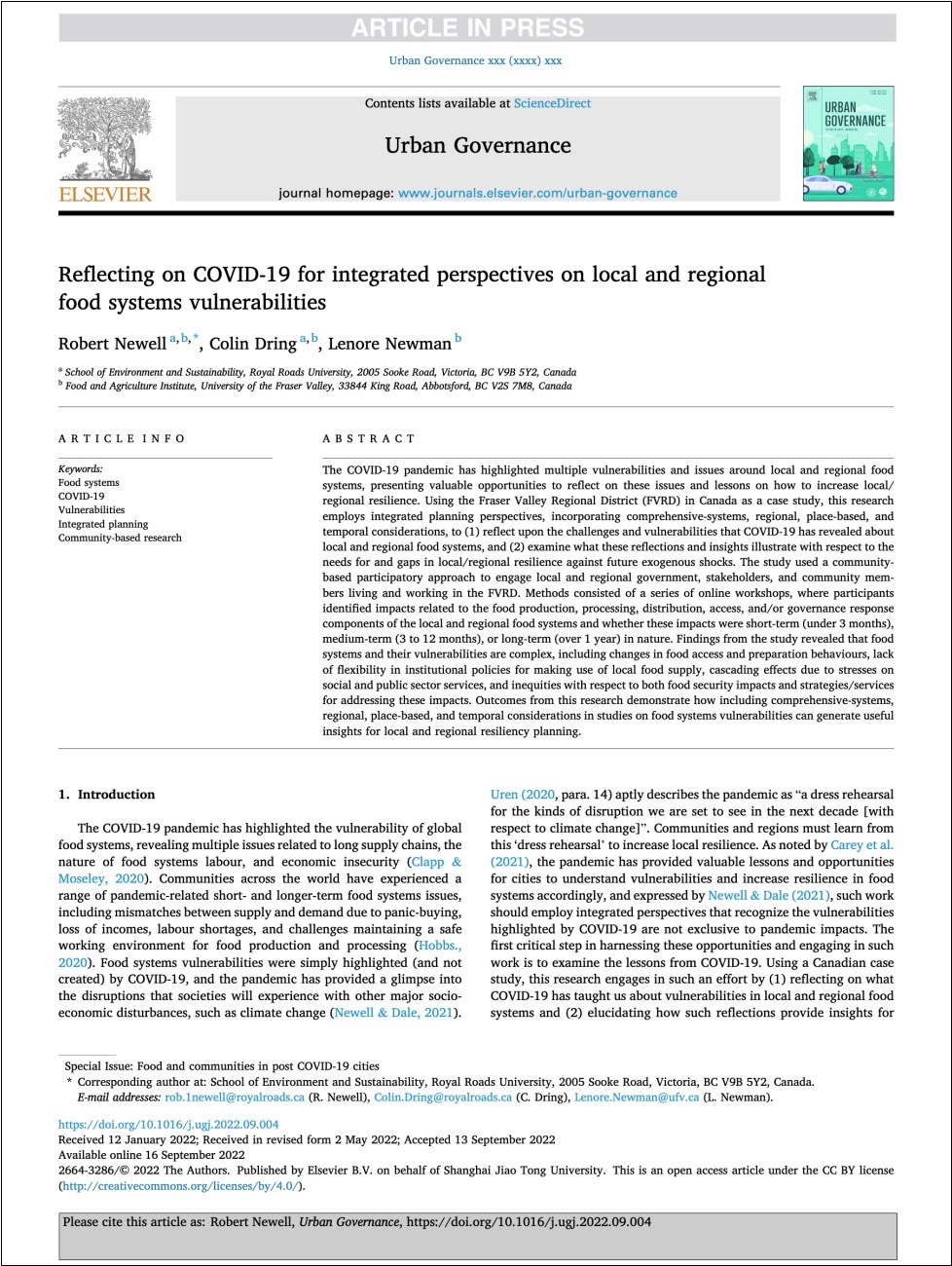
The COVID-19 pandemic has highlighted multiple vulnerabilities and issues around local and regional food systems, presenting valuable opportunities to reflect on these issues and lessons on how to increase local/regional resilience. Using the Fraser Valley Regional District (FVRD) in Canada as a case study, this research employs integrated planning perspectives, incorporating comprehensive-systems, regional, place-based, and temporal considerations, to (1) reflect upon the challenges and vulnerabilities that COVID-19 has revealed about local and regional food systems, and (2) examine what these reflections and insights illustrate with respect to the needs for and gaps in local/regional resilience against future exogenous shocks. The study used a community-based participatory approach to engage local and regional government, stakeholders, and community members living and working in the FVRD.
Newell, R., Dring, C., & Newman, L. (2022). Reflecting on COVID-19 for integrated perspectives on local and regional food systems vulnerabilities. Urban Governance.
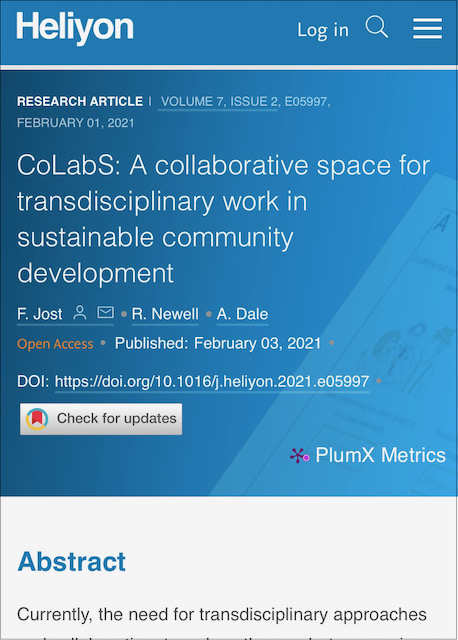
This research article explored the development of an online platform "CoLabS", specifically designed as a virtual meeting and learning space to support collaboration within and between communities to accelerate sustainable community development efforts. While the move towards online collaboration in virtual environments has steadily increased in the past decade, it has now become essential due to the COVID-19 pandemic. Based on the feedback provided by focus groups, the collaboratory platform's design and usability, as well as the technical aspects and its functionality are discussed in this paper.
Jost, F., Newell, R., & Dale, A. (2021). CoLabS: A collaborative space for transdisciplinary work in sustainable community development. Heliyon, 7(2).
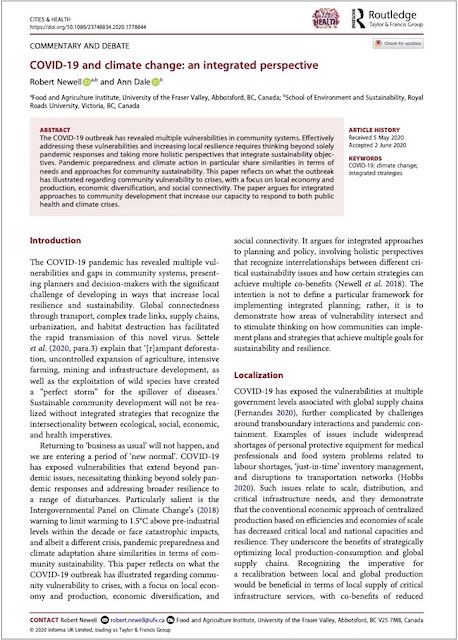
The COVID-19 outbreak has revealed multiple vulnerabilities in community systems. Effectively addressing these vulnerabilities and increasing local resilience requires thinking beyond solely pandemic responses and taking more holistic perspectives that integrate sustainability objectives. Pandemic preparedness and climate action in particular share similarities in terms of needs and approaches for community sustainability. This paper reflects on what the outbreak has illustrated regarding community vulnerability to crises, with a focus on local economy and production, economic diversification, and social connectivity.
Newell, R. & Dale, A. (2020). COVID-19 and climate change: an integrated perspective. Cities & Health.
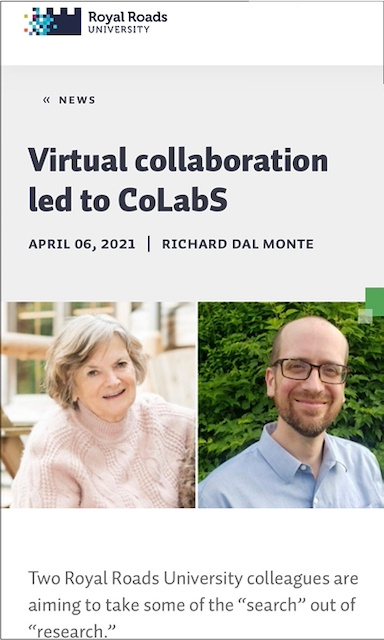
"Ann Dale and Rob Newell have teamed up to create CoLabS - which stands "community + collaboration + sustainability” and is pronounced Ko-Lab-Ess - a flexible and customizable online platform for facilitating virtual collaboration amongst researchers, from university professors and students to non-profits, government agencies, and community groups". Richard Dal Monte
Dal Monte, R. (2021). Virtual collaboration led to CoLabS. Royal Roads University News.
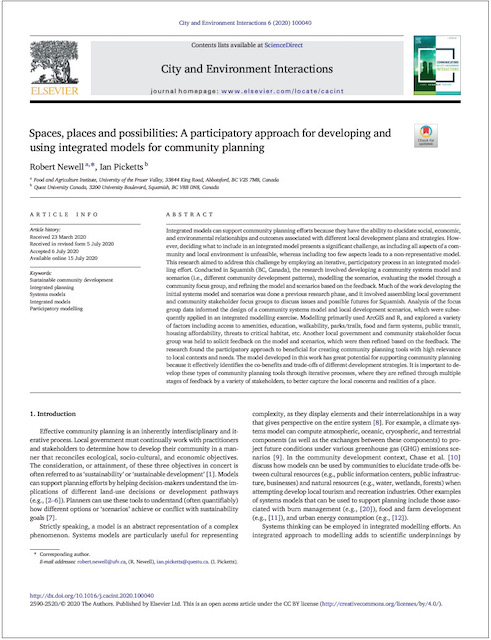
Integrated models can support community planning efforts because they have the ability to elucidate social, economic, and environmental relationships and outcomes associated with different local development plans and strategies. However, deciding what to include in an integrated model presents a significant challenge, as including all aspects of a community and local environment is unfeasible, whereas including too few aspects leads to a non-representative model. This research aimed to address this challenge by employing an iterative, participatory process in an integrated modelling effort.
Newell, R., & Picketts, I. (2020). Spaces, places and possibilities: A participatory approach for developing and using integrated models for community planning. City and Environment Interactions, 6.
|